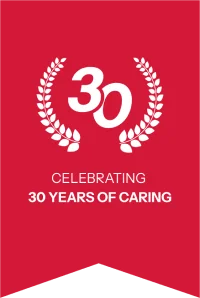If you have a passion for helping vulnerable people, then a career as a care assistant might be the ideal role that matches your hard work ethic, and innate ability to make individuals feel seen and heard. Care assistants play a vital role in helping people to live a better quality of life, providing assistance with daily tasks, monitoring medication and helping to establish a daily routine.
To become a care assistant, official qualifications related to the care industry are always an added plus to any resume. However, it’s your personality, optimistic outlook on life and practical approach to tasks that can really make you stand out from the crowd when applying to become a trusted care assistant for a regulated care service provider.
At Forest Homecare, we’re always looking to expand our care assistant team and take on vibrant, can-do attitude people that have the potential to completely transform the lives of patients for the better. If this sounds like you, then we’ve compiled some useful information for you that might be useful when starting your application..
What does a care assistant do?
Care assistants can also be referred to as support workers or caregivers and their roles can vary, depending on different care settings. Working under a professional healthcare supervisor, typical duties include helping patients to establish a daily routine and get back on their feet after complications from health problems.
A key task is helping with daily chores, such as helping patients wash, dress and eat. Care assistants play an integral role in helping to keep patients comfortable, and in familiar and friendly company. Later on in your career, you may be asked to monitor conditions and conduct health checks, or even regulate medication based on guidance from health professionals such as doctors or nurses.
It’s a great profession to consider, with the demand for health care assistants rising on a daily basis due to the fact that people are living much longer.
What training will be provided?
After a thorough background check and several interview stages, care assistants can expect to take part in paid induction training, that is often revisited in light of regulation updates, and will also be presented with the opportunity to gain full care certificates and health and social care qualifications. The reward of becoming a care assistant comes with the educational journey, and the many opportunities to learn and grow the skills and knowledge you’ve already worked hard to build. You’ll also have the support of a whole team of like-minded people, who are there to ensure you have fun and that your own well being is supported and valued.
Valuable Personal Skills
To become a successful care assistant, qualifications can be a strong foot in the door and an appealing aspect of your CV. However, impeccable people, practical and communication skills are usually valued above anything else.
In your care assistant application, highlighting examples of demonstrable people-facing experience can really make you stand out. Maybe you’ve cared for a loved one, or helped out a community project to push a collective agenda. Whatever it might be, you want to paint a picture of the type of personality you are, and how your outgoing and proactive attitude makes you cut out for a role in care.
Problem solving and leadership skills can also come in handy, when showing how you can stay calm, collected and focused when dealing with challenging situations head on. A non-negotiable trait of all proficient care workers is someone who can be trusted and dependent on – not just by patients, but by the busy team that relies on you on a daily basis.
To put it bluntly, what you lack in qualification, you can demonstrate in your lived experiences and attitude to life. If you lead with this, there will be no questions as to your capabilities and potential as a care assistant.
Conclusion
To conclude, qualifications to become a health care assistant are not essential. What is essential is a passion and unwavering commitment to better the lives of others in need of extra support and care and a strong willingness to take on intensive care training. At Forest Homecare, we can provide you with the opportunity of embarking on a highly-rewarding role working in the care sector.


